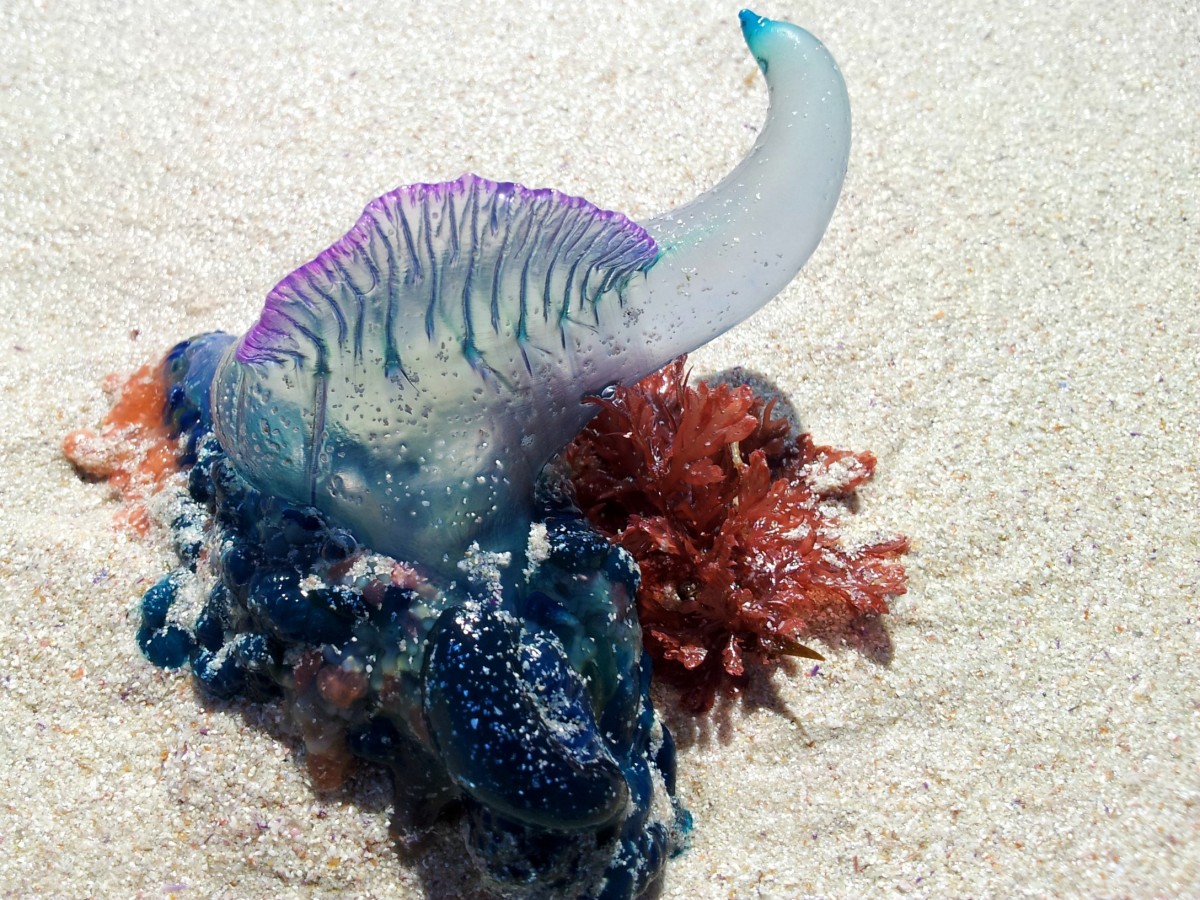 Bathers in Co Clare are being urged to exercise extreme caution due to the worst Portuguese Man O’War infestation off the Clare coast in a century.
Bathers in Co Clare are being urged to exercise extreme caution due to the worst Portuguese Man O’War infestation off the Clare coast in a century.
Populations of the venomous species have increased along the western seaboard due to warming waters with record sightings of the species reported during recent weeks.
Man-of-wars are found, sometimes in groups of 1,000 or more, floating in warm waters throughout the world’s oceans. Their tentacles can extend up to a maximum length of 165 ft (50 m). Man-of-wars have no independent means of propulsion and either drift on the currents or catch the wind with their gas filled floats. To avoid threats on the surface, they can deflate their air bags and briefly submerge. It is most commonly found in the tropical and subtropical regions of the Pacific and Indian oceans and in the northern Atlantic Gulf Stream.
Clare McGrath, Clare’s Water Safety Development Officer, is advising beach-goers to be vigilant and to avoid any Portuguese Man O’War. “Surfers, kite surfers, swimmers, kayakers, divers and walkers need to keep a vigilant eye open for these creatures which give a very strong sting and to some people can cause anaphylactic shock or seizures.”
Ms McGrath added “Stings usually cause severe pain to humans, leaving whip-like, red welts on the skin that normally last 2 or 3 days after the initial sting, though the pain should subside after about an hour. However, the venom can travel to the lymph nodes and may cause, depending on the amount of venom, a more intense pain. A sting may lead to an allergic reaction. There can also be serious effects, including fever, shock, and interference with heart and lung function.”
She concluded “Detached tentacles and dead specimens including those that wash up on shore can sting just as painfully as the live creature in the water and may remain potent for hours or even days after the death of the creature or the detachment of the tentacle.”
It is not just in Clare that an infestation of the blue creatures is being experienced. Local authorities from Cork, Kerry, Galway, Mayo and Donegal have reported the creatures on their shores, mainly in south and southwest facing bays. There have been reports of in excess of 80 landing on the South Harbour in Cape Clear in Co Cork, and in excess of 20 in Keel Bay in Achill.
Members of the public who come in contact with a Portuguese Man O’War are advised to pay attention to the following points.
- Ensure you don’t get stung yourself when aiding others.
- Remove any attached tentacles with a gloved hand, stick or towel.
- Do not rub the affected area, this may result in further venom release.
- Rinse the affected area with sea-water – do not use fresh water, vinegar or urine.
- Apply a “dry cold pack” to the area – ie place a cold pack or ice inside a plastic bag and then wrap this package in a t-shirt or other piece of cloth.
- Seek medical attention if there is anything other than minor discomfort. Note the sting can cause anaphylactic shock, if you are feeling unwell go to A&E for treatment.